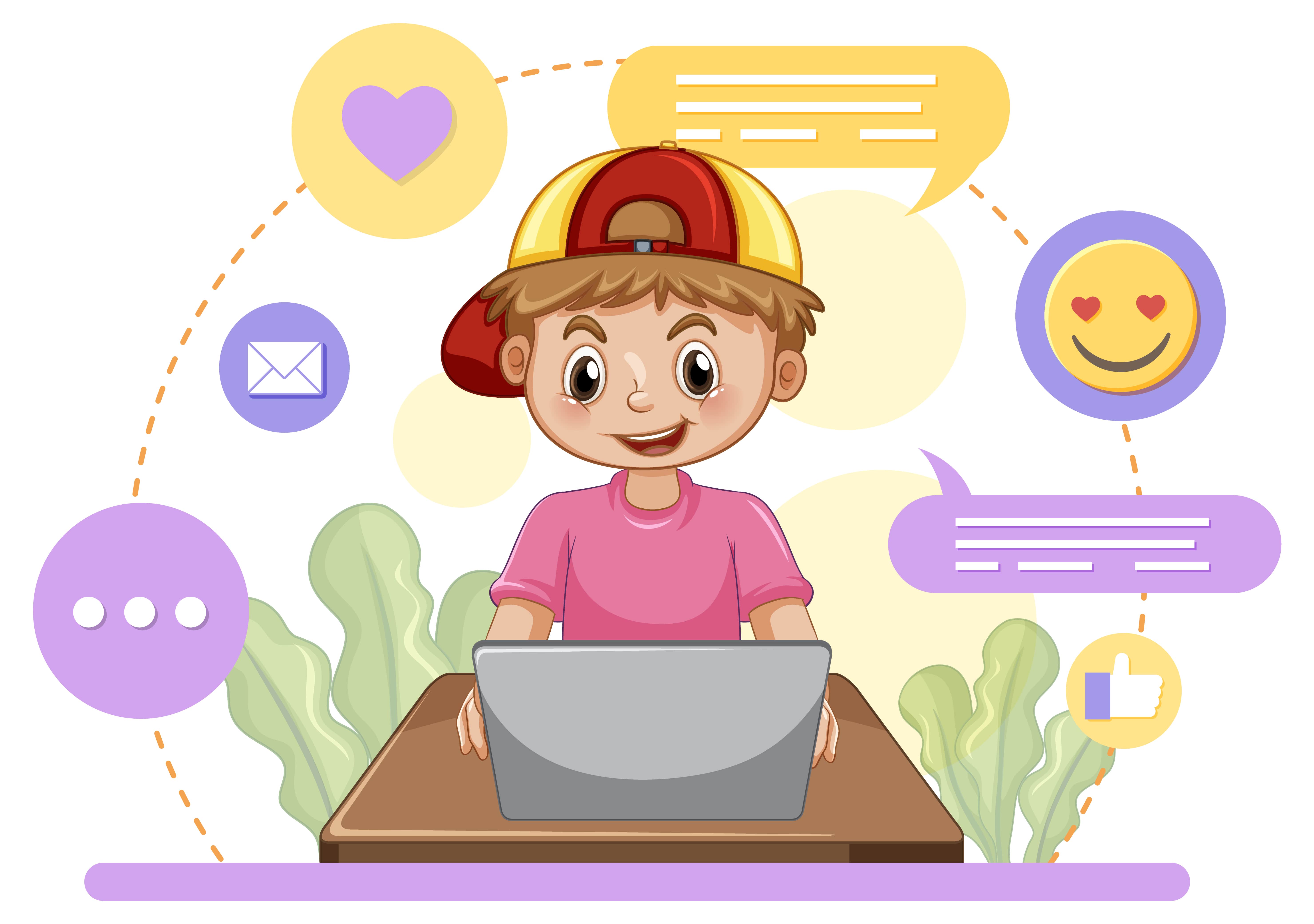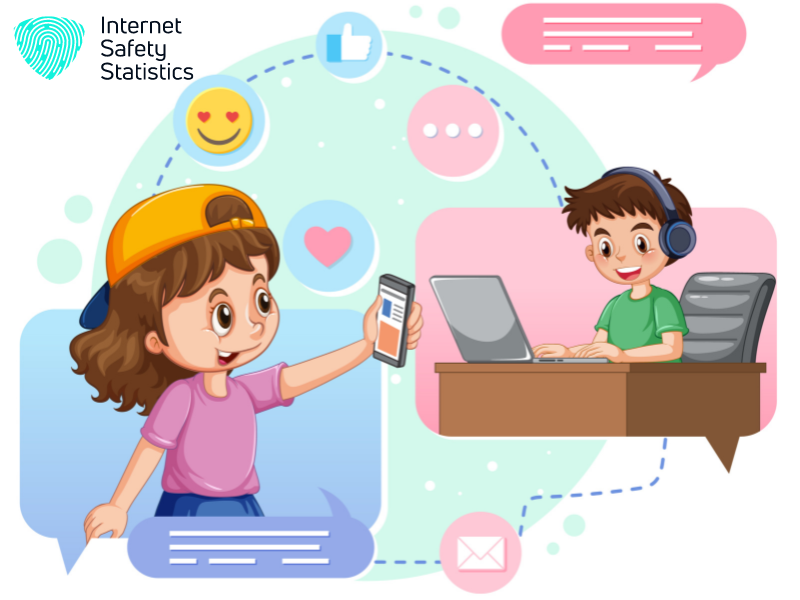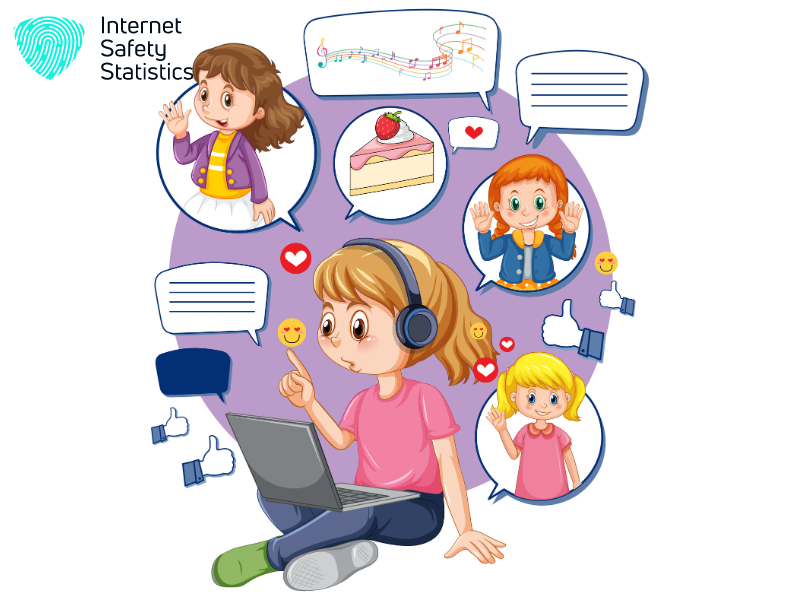
Today, more children than ever are using computers in their daily lives. They use computers for their education, as well as for entertainment value. When you release your children onto the Internet, though, you are opening them up for issues along the way if you don’t take the proper precautions to protect them. It is your job as a parent to address browsing security and make sure your children are as safe as possible as they enter the world of Internet use.
Lack of Browsing Security: Increased Risks Online

Most adults are reasonably aware of the risks that lurk on the Internet. While some children may have an idea that there are “bad people” on the Internet, their natural characteristics of innocence, naivety and curiosity make them a more vulnerable target while they are using the Internet. Children who use the Internet are at an increased risk for:
- Cyberbullying: With the anonymity afforded by the internet, cyberbullying has become a pervasive issue among children and adolescents. Harassment, intimidation, and social exclusion through online platforms can have profound psychological effects on victims, often leading to anxiety, depression, and even suicidal ideation.
- Inappropriate Content: The internet hosts a plethora of content, not all of which is suitable for young audiences. Exposure to explicit material, violence, or hate speech can desensitise children and shape their attitudes and behaviours in harmful ways.
- Online Predators: Predators actively seek out vulnerable children online, often disguising their true identities and intentions. Through social media, chat rooms, or gaming platforms, they groom unsuspecting victims, manipulating them into engaging in inappropriate or dangerous activities.
- Downloading a Virus: Children may inadvertently download malicious software while browsing the internet, putting their devices and personal information at risk. Viruses, malware, and other forms of malicious code can compromise device security, leading to data breaches, identity theft, or financial loss.
- Removing a Critical File: Inexperienced users, including children, may unintentionally delete or modify critical system files while exploring their devices or attempting to customise settings. Such actions can disrupt device functionality, leading to system errors, crashes, or loss of important data.
One of the biggest problems is many parents don’t realise these risks until it is too late. This is why it is so critical for parents to educate themselves on how to keep their children secure and how to talk to their children about these dangers.
Browsing Security: Warning Signs
In most cases, children will leave behind warning signs that they are getting into trouble online. Even the children who think they are able to hide what they are doing may trigger some red flags with their parents. They may not leave any physical evidence on the computer, but other aspects of their behaviour can be an indicator of trouble. Parents need to learn what warning signs to look for, including:
- Spending too much time online.
- Being secretive about computer activity.
- The presence of pornography on the computer.
- An increase in phone calls from unknown numbers, especially at unusual times of the day.
- Mail from unknown senders.
- Withdrawing from family.
- Using an alternate account online.
Parents know their children better than anyone else. While these warning signs are some of the most common ones, your child may exhibit signs that aren’t a sign for someone else. Always trust your gut instinct when it comes to your child and his activity online.
Strategies for Browsing Security

In an era where digital interactions are increasingly prevalent, ensuring browsing security for children is paramount. Parents and guardians play a pivotal role in safeguarding their children’s online experiences through a combination of proactive measures and open communication. Here are key strategies to enhance browsing security:
Monitor Your Child’s Usage
The best thing parents can do is stay involved with their children’s Internet usage. This means keeping the computer in an area that has a lot of traffic and is easily seen by parents or other adults. Children are less likely to get into trouble online when the computer is out in the open because it is difficult to hide. You should also regularly check your child’s browsing history and browsing security settings to make sure everything is going well online.
It is important to realise that some children are extremely Internet savvy and may know how to delete or hide browser activity. If your child is one of those, installing monitoring software or activating that feature on your parental controls can help you see if this is happening.
Create a List of Rules
Just like every other aspect of your child’s life, there should be rules for online activity. While you will need to make your own list based on your family’s needs, it can be beneficial to get some feedback from your children as well. Children are more likely to follow the rules you have set if they have some say in what those rules are.
In addition to a list of rules, such as when the Internet can be used, why, which sites can be visited, whether a child is allowed to chat, and more, clearly define the consequences for not following the rules. Clearly defined consequences make the process easier instead of trying to come up with an appropriate punishment on the spur of the moment.
Talk to Your Child
Today, it seems as though no one has the time to sit down and talk as a family. However, it is even more important now that parents take the time to really talk to their children about the potential dangers of the Internet. In many cases, children don’t even realise they are doing something wrong because they have never been talked to about it by a trusted adult.
Before you set your child loose on the Internet, have a serious talk about the rules you expect him to follow, as well as the dangers he may encounter. Make sure he knows he can come to you if he encounters anything unusual while he is browsing online. And don’t stop with just one talk. Keep the conversation going, adding to it and answering any questions along the way.
Use Built-In Parental Controls
Most computers today have parental control options built into the system to help parents monitor and control what their children experience while they are online. However, many parents either aren’t aware these settings are available or don’t take the time to set them up. While it may take a while to set them up initially, this is one step every parent should take before allowing children free reign on the Internet. Through these controls, parents can:
- Limit the number of time children spend online.
- Block inappropriate content.
- Block or allow specific websites.
- Implement filters.
- Restrict downloading capabilities.
- Set specific browsing security settings for individual accounts.
These settings allow you to mould the Internet experience to what your child can handle and is allowed to use. As your child gets older, you can make adjustments. Setting parental controls also allows you to feel more at ease without having to hang over your child’s shoulder constantly while he is on the computer.
Keep Your Anti-Virus Updated
The right anti-virus software is critical to protect your computer, especially while your child uses it. Children have a tendency to click on things without really reading them. This can easily lead to a downloaded virus that can either slow down or crash your computer, as well as steal critical information. To reduce the chances of this happening, having an updated anti-virus and proper settings will help. It can also be beneficial to make sure your child knows he should ask you before he clicks on anything that pops up. Sometimes even closing out the window can trigger a virus download.
Use Child-Safe Browsers
The built-in parental controls are often all a parent needs if they are used correctly. However, sometimes these settings can border on being too restrictive or not restrictive enough. It can be difficult to find the perfect medium to allow your child access to what he needs and restrict him from what he doesn’t. Another alternative many parents use is child-safe browsers. These browsers often cost additional money but are a great way to make sure your children only have access to child-friendly websites. These browsers are also often easier for children to use than the traditional browsers most people already have on their computers. This makes them ideal for younger children.
Teach Your Child to Handle Cyberbullying
Cyberbullying has increased rapidly in recent years. It is important for all parents to talk to their children about the risk of cyberbullying, when it can happen, and what they can do about it. Make sure your child knows that no one deserves to be treated badly, even online. Teaching your child how to handle cyberbullying can provide your child with valuable tools they can use for the rest of their lives. Your child should never be afraid to tell you when he witnesses or experiences cyberbullying so you can help him handle it appropriately. Make sure your child knows to:
- Leave the website if he is cyberbullied.
- Report the behaviour to a moderator or someone else in charge.
- Ignore the cyberbully.
- Block cyberbullies whenever possible.
Other Online Options
In addition to being concerned with the way your child uses the computer at home, older children, particularly teens, now often access the Internet through smartphones and other mobile devices. If your child uses these devices, it is important to understand the various parental control settings on these devices so you can keep your child safe online. Just like the computer at home, you should set rules for smartphone rules and talk to your child about the unique dangers associated with these devices, such as social mapping, which allows their friends and others to see where they are at any given time.
The Internet is full of dangers, especially for children. As parents, it is important to do what you can to make sure your children are protected. Talking to your children, staying involved, and learning as much as you can about computers, the Internet, and the safety features that are available, including browsing security and parental controls, can help you keep your children safe online.
